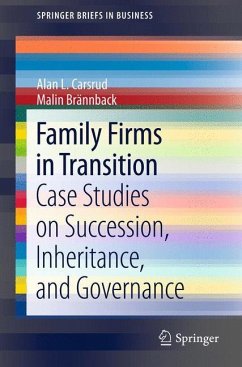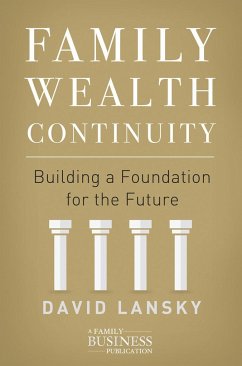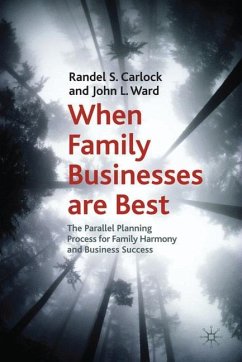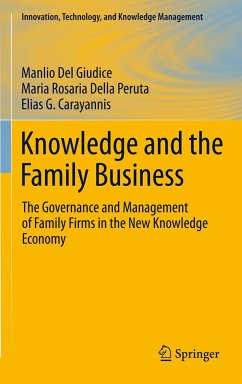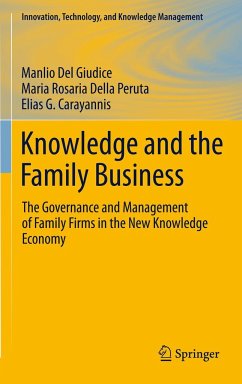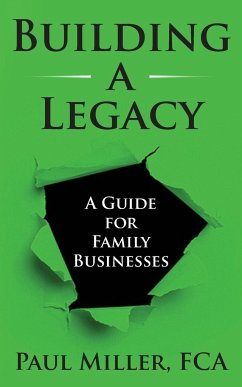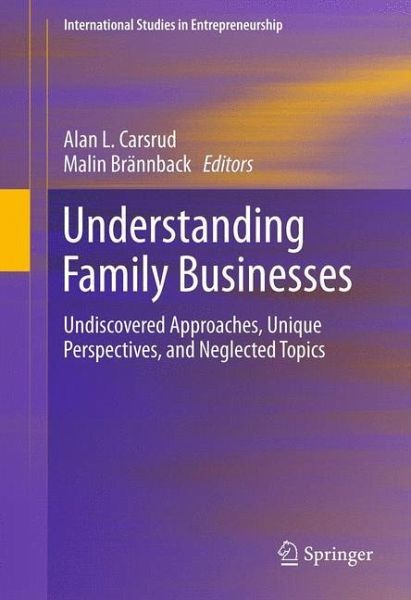
Understanding Family Businesses
Undiscovered Approaches, Unique Perspectives, and Neglected Topics
Herausgegeben: Carsrud, Alan; Brännback, Malin
Versandkostenfrei!
Versandfertig in 6-10 Tagen
76,99 €
inkl. MwSt.

PAYBACK Punkte
38 °P sammeln!
Businesses owned and operated by families constitute the vast majority of firms around the world. These firms are found in all industrial segments, from retail and service establishments to heavy manufacturers. Their sizes and revenues range from the smallest venture of a husband and wife roadside food stall in rural India to the largest multinational, highly diversified corporations in the United States and Europe. Many challenges, such as competition, regulation, environmental concerns, access to capital, and macroeconomic factors confront family and nonfamily firms alike. In addition, family and closely-held firms grapple with such issues of succession, continuity, conflict resolution, identity and organizational roles, estate and financial planning that are idiosyncratic to them; when psychological, social, and emotional factors are in play, constantly changing familial relationships influence the strategic and financial choices they make. Yet, there has been comparatively little theoretical or empirical research undertaken on family firms, relative to entrepreneurship and strategic management.
This book addresses gaps in the literature by presenting a holistic, multi-disciplinary approach to the study and practice of family business that draws from such fields as psychology, anthropology, sociology, strategy, family therapy, family studies, wealth management, and international business. An international array of experts addresses both macro issues (including the role of family businesses in new business creation and economic development, influences of culture on family business, public policies that can encourage or threaten family business) and firm management (strategic and financial decision making, governance, entering and exiting). Featuring case studies from firms in a variety of industries, Understanding Family Businesses not only offers provocative new insights on family business dynamics, but outlines an agenda for future research.
This book addresses gaps in the literature by presenting a holistic, multi-disciplinary approach to the study and practice of family business that draws from such fields as psychology, anthropology, sociology, strategy, family therapy, family studies, wealth management, and international business. An international array of experts addresses both macro issues (including the role of family businesses in new business creation and economic development, influences of culture on family business, public policies that can encourage or threaten family business) and firm management (strategic and financial decision making, governance, entering and exiting). Featuring case studies from firms in a variety of industries, Understanding Family Businesses not only offers provocative new insights on family business dynamics, but outlines an agenda for future research.





